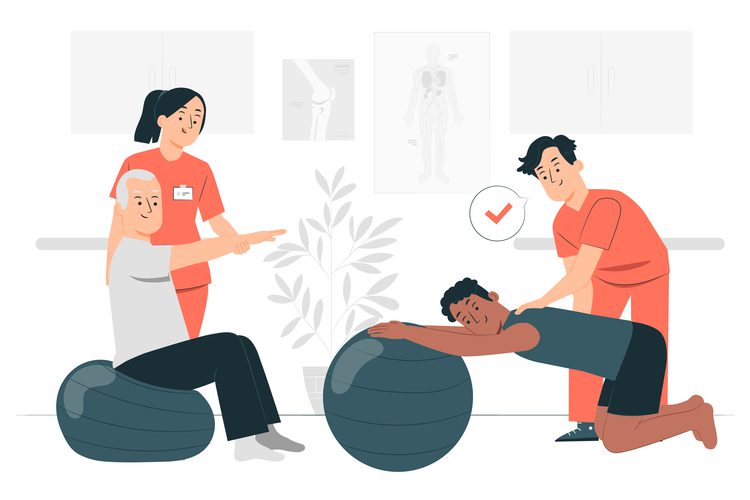Are you feeling anxious, overwhelmed, or stressed out? Are these emotions affecting your daily life and preventing you from doing the things you love? If so, then it’s time to consider occupational therapy in Australia. Many people associate occupational therapy with physical rehabilitation, but did you know that it can also play a vital role in improving your mental health? In this blog post, we’ll explore how occupational therapy can help manage mental health issues and improve overall well-being. Don’t let anxiety and stress control your life any longer – read on to learn more about the power of occupational therapy!
What Is Occupational Therapy?
While most people are familiar with physical therapy, occupational therapy is often less understood. Occupational therapy is a type of therapy that helps people regain skills and independence after an illness or injury. Occupational therapists work with patients to help them perform activities of daily living, such as dressing, eating, and bathing. They also help patients learn new skills, such as using adaptive equipment or learning how to cook a meal.
Occupational therapy can help improve your mental health in several ways. First, it can help you regain lost skills and independence. If you’ve been struggling to do everyday tasks since your diagnosis, occupational therapy can help you get back on track. Second, occupational therapy can help you learn new skills. If you’re having trouble adjusting to your new normal, learning new coping mechanisms can be extremely helpful. Lastly, occupational therapy can provide much-needed support and encouragement. When dealing with a mental illness, it’s easy to feel alone and lost. However, working with an occupational therapist can give you the boost you need to keep going.
Benefits Of Occupational Therapy For Mental Health
The benefits of occupational therapy for mental health are plenty. In fact, occupational therapists are often on the front lines of treating mental health issues, as they help patients regain independence and improve their quality of life.
Some of the specific benefits of occupational therapy for mental health include:
- Helping patients identify and achieve goals: One of the main goals of occupational therapy is to help patients identify what they want to achieve in life, and then develop a plan to make it happen. This can be a powerful process for people struggling with mental health issues, as it can help them define their purpose and start working towards a better future.
- Improving social skills: Many people with mental health issues struggle with social interaction, but occupational therapists can help them improve these skills. Through various activities and exercises, occupational therapists can help patients learn how to better communicate and interact with others.
- Regaining independence: A big part of occupational therapy is helping patients regain independence in their daily lives. This can be anything from teaching someone how to cook and care for themselves after a hospital stay to helping someone re-enter the workforce after an injury or illness. For people with mental health issues, regaining independence can be a huge step forward in recovery.
How To Find An Occupational Therapist
If you’re looking for an occupational therapist, the best place to start is by asking your primary care doctor for a referral. You can also ask friends or family members if they know of a good occupational therapist in your area. Once you have a few names, you can research each one online to find out more about their experience and qualifications.
When you’re ready to narrow down your choices, schedule a consultation with each occupational therapist on your list. This will give you an opportunity to meet them in person and ask any questions you have about their practice. After meeting with each therapist, you’ll be able to make an informed decision about which one is right for you.
Common Types Of Mental Health Conditions That Can Be Treated With Occupational Therapy
Mental health conditions are often complex and can vary greatly in severity. However, occupational therapy can be an effective treatment for many different types of mental health conditions.
Some of the most common types of mental health conditions that can be treated with occupational therapy include anxiety disorders, depression, bipolar disorder, post-traumatic stress disorder (PTSD), and obsessive-compulsive disorder (OCD).
Occupational therapy can help people with mental health conditions by teaching them new skills and strategies to manage their symptoms. Therapists can also help people identify and address any barriers that may be preventing them from participating in activities that are important to them.
If you are living with a mental health condition, consider talking to your doctor about whether occupational therapy might be right for you.
Conclusion
Occupational therapy can be a great way to improve your mental health. It helps you develop the skills and confidence needed to manage stress, build relationships, and handle challenging situations. It also paves the way for healthier habits in order to develop a healthy lifestyle. Whether it’s learning more productive coping strategies or exploring different options for self-care activities, occupational therapy can provide valuable insights that lead us towards better mental health outcomes. We hope this article has been helpful in understanding why occupational therapy might be beneficial for those looking to grow their emotional wellbeing.

